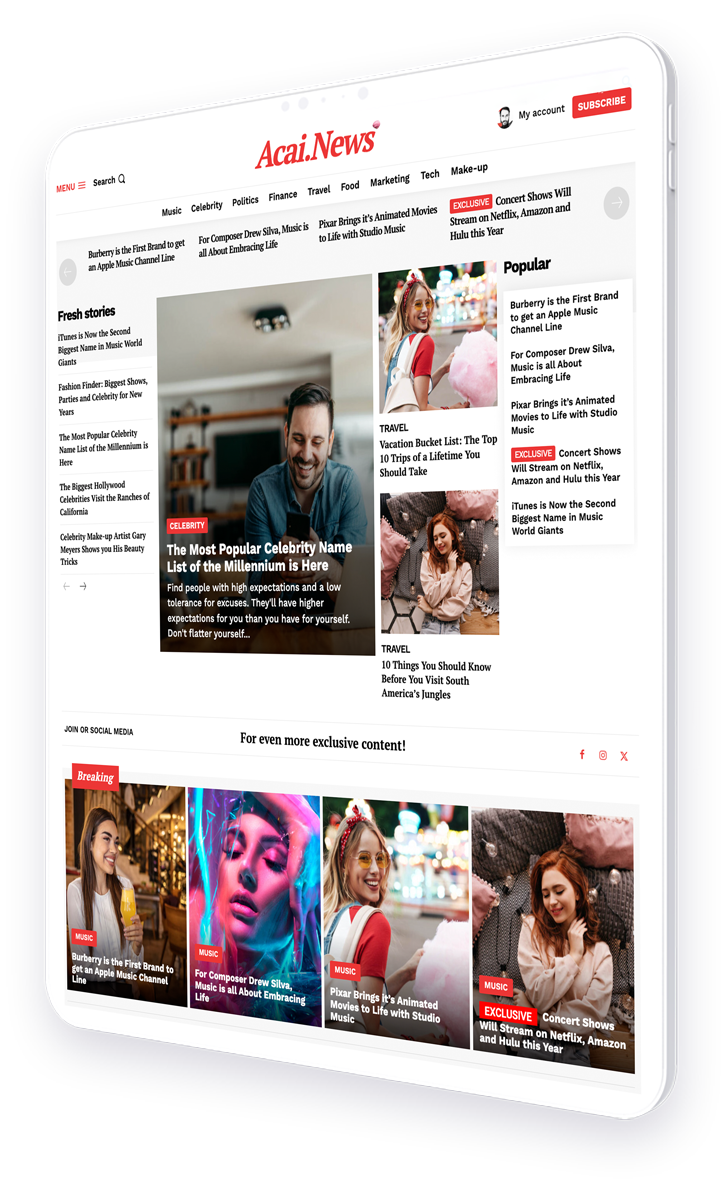Replacing traditional ebooks with richer, AI-curated magazine editions
The digital age has transformed how we consume written content, from the decline of print media to the rise of eBooks. However, the evolution continues as AI-curated magazine editions begin to replace traditional eBooks, offering a richer, more interactive experience.
In the past decade, eBooks have become a staple in the world of reading, providing convenience and accessibility to readers globally. However, as technology advances, so does the potential for enhancing how we interact with digital content. AI-curated magazine editions are emerging as a dynamic alternative, offering personalized content that adapts to reader preferences and behaviors.
- The Evolution of Digital Reading
- AI in Publishing
- Benefits of AI-Curated Magazines
- Challenges and Considerations
- Case Studies
- The Future of Digital Reading
- Conclusion
The Evolution of Digital Reading
From the first digital texts to the latest AI-driven applications, the journey of digital reading has been marked by significant milestones:
- The rise of the eBook in the early 2000s, providing readers with a digital alternative to print.
- The development of e-readers like Amazon’s Kindle and Barnes & Noble’s Nook, which popularized digital reading.
- The introduction of tablets and smartphones, which introduced apps for more interactive reading experiences.
Today, AI-curated magazine editions represent the next step in this evolution, leveraging artificial intelligence to create highly personalized and engaging content.
AI in Publishing
Artificial intelligence is playing an increasingly significant role in the publishing industry, transforming various aspects from content creation to consumer engagement:
- Content personalization, where AI algorithms analyze reader data to tailor content to individual preferences.
- Automated content generation, where AI tools assist in creating data-driven articles, summaries, and reports.
- Enhanced interactive features, such as AI-driven quizzes, polls, and interactive graphics, which enrich the reading experience.
Benefits of AI-Curated Magazines
AI-curated magazine editions offer several advantages over traditional eBooks, including:
- Enhanced Personalization: AI algorithms can curate content that aligns with the reader’s interests, past behavior, and even reading pace.
- Increased Engagement: Interactive elements such as embedded videos, audio snippets, and interactive graphics make the reading experience more engaging.
- Real-time Content Updates: Unlike eBooks, AI-curated magazines can update content in real-time, providing the latest news and insights.
Challenges and Considerations
Despite the benefits, there are challenges to the widespread adoption of AI-curated magazines:
- Data Privacy Concerns: Collecting data for personalization raises issues regarding user privacy and data security.
- Technological Barriers: Not all readers have access to the devices needed to fully enjoy interactive digital magazines.
- Resistance to Change: Some readers prefer traditional reading formats and may be hesitant to adopt new technologies.
Case Studies
Several publishers have successfully integrated AI into their digital magazines, demonstrating the potential of this technology:
- Case Study 1: A leading science magazine used AI to personalize article recommendations, resulting in a 30% increase in reader engagement.
- Case Study 2: A lifestyle publication introduced interactive AI quizzes, enhancing user interaction and time spent on the app.
The Future of Digital Reading
The future of digital reading is likely to see increased integration of AI, not just in curating content but also in facilitating immersive experiences through augmented reality (AR) and virtual reality (VR). These technologies could further transform how we consume digital content, making it more interactive and engaging than ever before.
Conclusion
The shift from traditional eBooks to AI-curated magazine editions represents a significant evolution in digital reading. By leveraging AI, publishers can offer more personalized, engaging, and dynamic content, meeting the demands of modern readers. While challenges remain, the potential benefits make this an exciting development in the publishing industry.
For more insights into how AI is transforming the publishing industry, visit Publishers Weekly.




